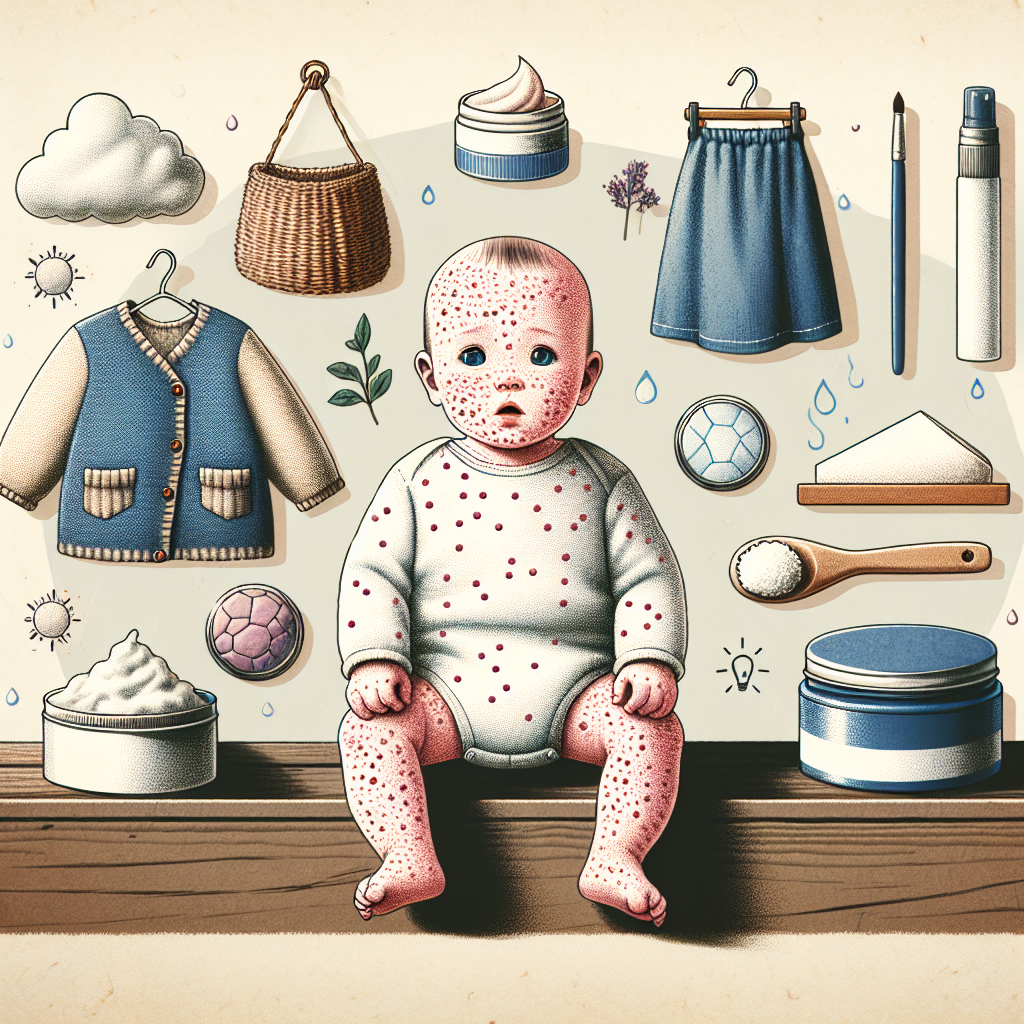Miliary Irritation in Babies: Causes and Effective Treatments
Irritatia miliaria, also known as "heat rash", is a common condition among babies. In summer, especially, high temperatures can cause small skin rashes that can bother the little ones. In this comprehensive guide, we will explore the causes of miliaria irritation in babies and recommend effective treatments to ease their discomfort.
Child Development: A Complete Guide to the Essential Stages
Motor Development
A child's stage of motor development is a time full of changes, involving small advances that help form fine and gross motor skills. During this period, the baby's sensitive skin is exposed to various irritants in the environment, such as high temperatures, making them more susceptible to conditions such as miliaria irritation.
Language development
As babies grow and begin to communicate, they become more aware of the discomfort they experience. Irritatia miliaria can be a source of stress and frustration for babies, also impacting their ability to develop language. A child who is uncomfortable may be less willing to interact verbally.
Causes of Miliaria Irritation
Miliaria irritation in babies can be caused by blockage of the sweat glands, which occurs when the pores are blocked by oils, cream or other substances, as well as by clothes unsuitable for high temperatures. This blockage prevents sweat from evaporating, leading to small bumps on the baby's skin.
Types of Miliary Irritation
There are several types of miliaria irritation, each with specific symptoms and severity. The irritation of miliaria crystallina appears as small, clear bumps, while miliaria rubra involves red, itchy bumps. Miliaria pustulosa, a rarer form, also includes painful pustules.
Effective treatments
Treatment of miliaria irritation focuses on cooling the affected area and avoiding excessive sweating. Cool baths and the use of cotton blankets can also help keep the skin dry. Hydrocortisone creams can relieve itching, but it is essential to consult your pediatrician before use.
Prevention of Miliaria Irritation
Prevention is the most effective treatment. Maintaining a comfortable temperature in the room, wearing loose clothing and avoiding prolonged exposure to heat can minimize the risk of developing miliaria irritation in babies. It is also important to avoid the application of heavy creams on babies' skin on hot days.
Signs of Complications
Although most cases of miliaria irritation resolve without treatment, it is important to watch for signs that may indicate complications, such as fever, severe swelling, or infection. In these cases, it is imperative to contact a doctor.
Baby comfort
Ultimately, when treating miliaria, the primary goal is baby's comfort. Keep the skin cool and dry, use products suitable for children's sensitive skin and provide plenty of peace and comfort.
Conclusion
In conclusion, miliaria irritation is a common concern among parents of babies, especially during hot summers. By understanding the causes and applying the appropriate treatment and prevention methods, you can ensure that your baby will be comfortable and happy. If rashes persist or worsen, do not hesitate to contact your pediatrician to rule out any other health problems. Stay up to date with the latest tips and recommended products by signing up to our newsletter and visiting the special baby section of our store.














































































































































